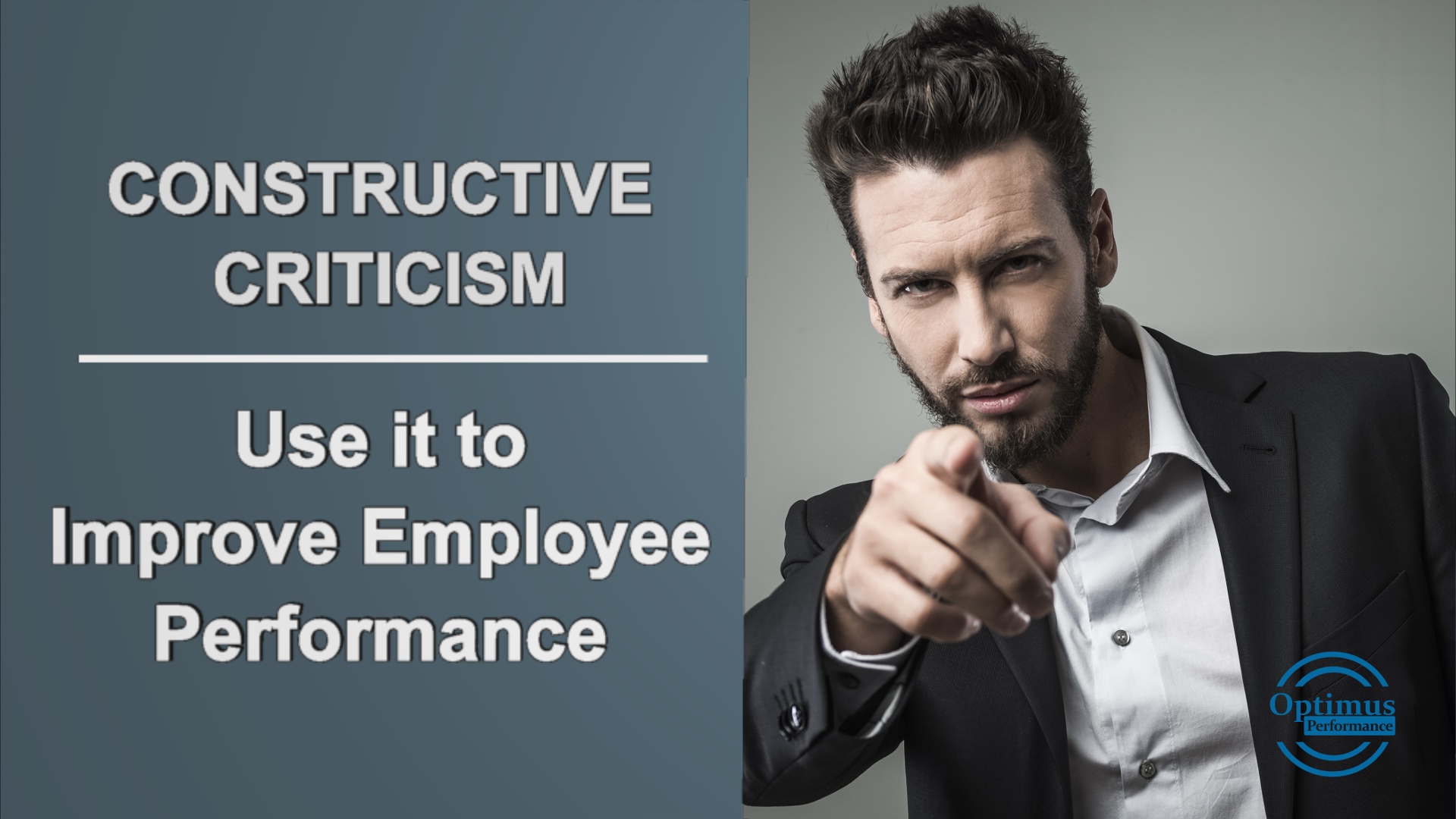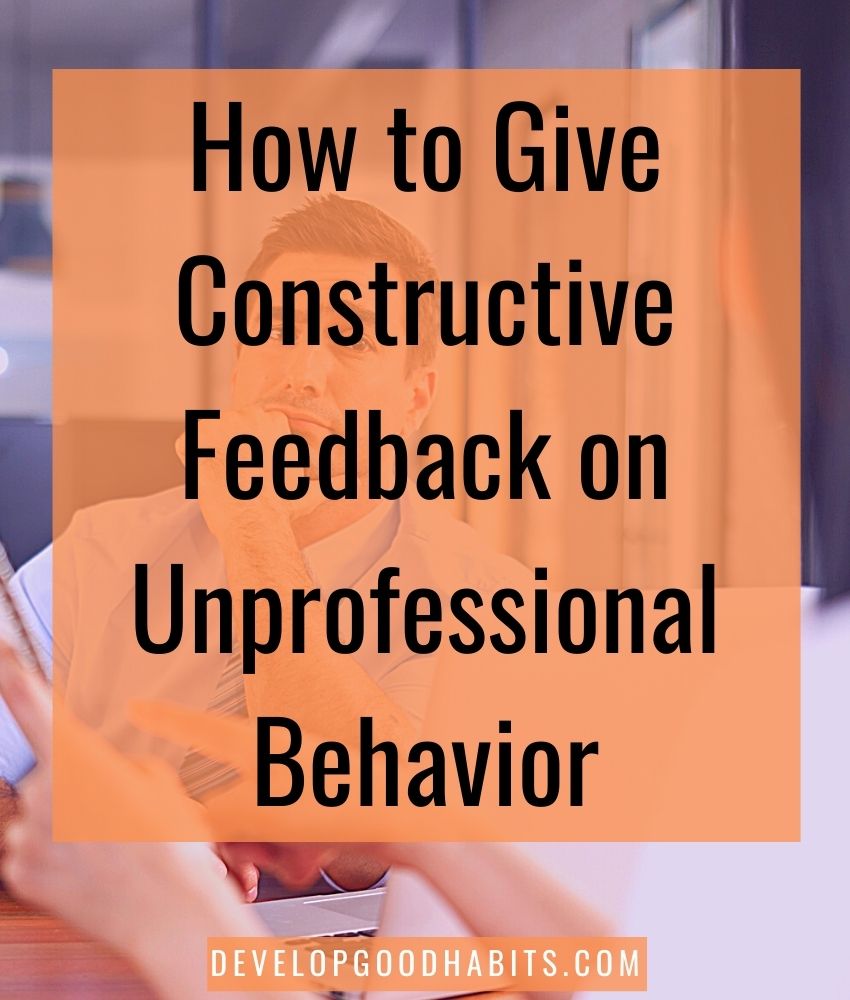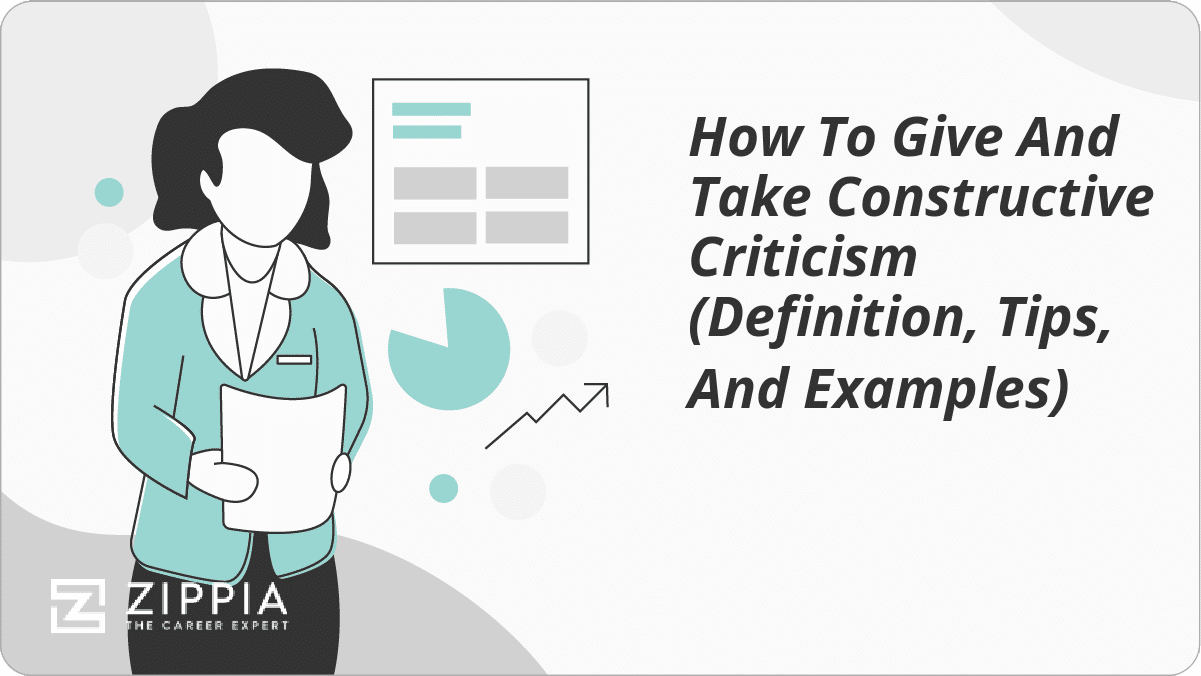How Should An Employee React When Receiving Constructive Criticism

Navigating constructive criticism is a critical skill for career growth. Failing to handle it effectively can damage professional relationships and hinder development.
Understanding the Core Issue
Constructive criticism, when delivered correctly, is intended to foster improvement. The goal is to provide feedback that is actionable and geared towards helping you excel.
A recent Harvard Business Review article emphasized that defensive reactions often stem from perceived threats to one's self-esteem or competence.
Immediate Reactions: What to Do First
Listen Actively. This means giving the person your full attention, minimizing interruptions, and focusing on understanding their perspective. Resist the urge to immediately defend yourself.
According to a 2023 survey by Gallup, employees who feel heard are 2.6 times more likely to perform their best work.
Seek clarification by asking questions. "Could you give me a specific example?" or "What could I have done differently?" demonstrates a willingness to learn.
Managing Your Emotions
It's natural to feel defensive or upset when receiving criticism. Acknowledge these feelings, but don't let them control your response.
Take a deep breath, if necessary, to calm your nerves before responding. Delaying your reaction allows for a more thoughtful and considered response.
Responding Professionally
Express gratitude for the feedback. Thanking the person, even if you disagree with the criticism, shows maturity and respect.
Acknowledge the validity of the feedback, even if only partially. Saying something like, "I understand your point about X," can defuse tension.
Outline a plan for improvement. Demonstrate your commitment to addressing the concerns raised. For example, "I will focus on Y in the future."
When the Feedback is Unfair or Unclear
Not all criticism is delivered effectively. If the feedback is vague or unfair, calmly request more specific examples.
If you believe the feedback is biased or inaccurate, schedule a follow-up meeting to discuss your concerns further. Prepare specific examples to support your perspective.
According to a study by SHRM, unclear or biased feedback can lead to decreased employee morale and productivity.
Long-Term Strategies for Handling Criticism
Document the feedback received. Keep a record of the criticism, your response, and any action items.
Seek regular feedback, not just during formal performance reviews. Proactively requesting feedback shows a commitment to continuous improvement.
Consider seeking mentorship or coaching. A mentor can provide guidance on how to handle difficult conversations and develop strategies for improvement.
What to Avoid
Avoid becoming defensive or argumentative. This will likely escalate the situation and damage your relationship with the person providing the feedback.
Do not ignore the feedback. Even if you disagree with it, ignoring the concerns raised can be interpreted as a lack of commitment to improvement.
Never publicly criticize the person who gave you the feedback. Maintain professionalism and address your concerns privately.
Moving Forward
Handling constructive criticism effectively is a crucial skill for professional success. Practice active listening, manage your emotions, and respond professionally to build stronger relationships and advance your career.
Ongoing training programs and mentorship opportunities can equip employees with the tools to navigate feedback effectively and promote a culture of continuous improvement.

















